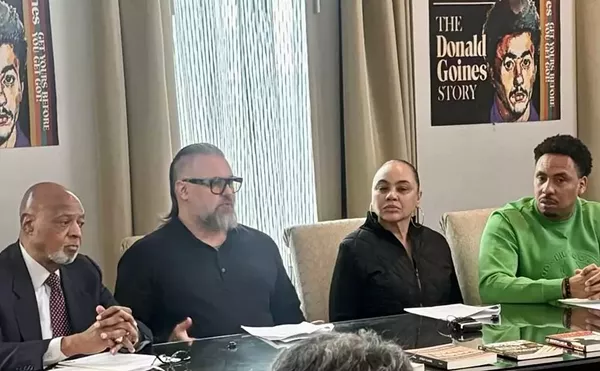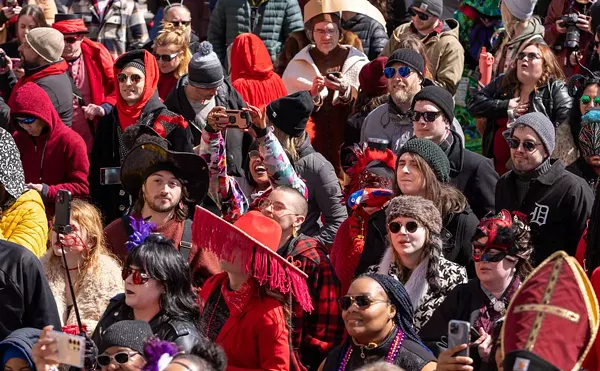Poised somewhere between a gimmick and a great idea, The Trilogy is French writer-director Lucas Belvaux’s attempt to break down a complicated story into three component parts, and then present each part as a feature-length film, each one representing a different genre. Taken separately, the films seem very uneven and at times incoherent, since the big picture is distributed between them in a manner that leaves plot gaps in each one. But taken together, it’s an impressive achievement.
There are different ways to enter Belvaux’s story but one is to view it as the tale of a troubled cop and two slightly interlinked cases he’s working on simultaneously, one deadly serious, the other more frivolous. In the first film, a noirish thriller called On The Run, the cop, Pascal (Gilbert Melki), is a minor figure and the focus is on Bruno (played by Belvaux) who is recently escaped from prison and determined to settle some old scores. Bruno is a political radical who has been imprisoned for some unspecified terrorist activity and the crux of this first installment is his relationship with his old girlfriend and comrade Jeanne (Catherine Frot), now settled down and married but not immune to Bruno’s dark charm when he reappears one day.
For Belvaux, genre is as much a matter of directorial style as it of certain narrative conventions and On The Run is fast-paced and studded with sudden outbursts of violence which accent a general moodiness. There’s also a fascination with process, especially when Bruno goes about devising his various disguises and subterfuges, that shows the influence of director Jean-Pierre Melville. Bruno is determined to exact revenge on a certain drug dealer (for reasons we won’t know until the third film), and when he’s trailing one of the dealer’s pushers he encounters Agnes, a morphine addict who happens to be the wife of Pascal, the previously mentioned cop who’s trying to track him down. Bruno rescues Agnes from the brutal pusher — but since Pascal and Agnes’s story won’t come to the forefront until the third film, we don’t know her full motivation when she decides to help him elude her husband. We do know that Pascal has been supplying his wife with drugs and has suddenly stopped, but it’s all very mysterious.
Are you following all this? Because, believe it or not, I’m giving you a greatly simplified version of what’s here. Be forewarned that the jigsaw nature of these films demands a good deal of alertness from the viewers, sometimes more than the stories seem to deserve. But a certain patience will be rewarded by a satisfying payoff up ahead.
The second film, An Amazing Couple, is a comedy, although a rather dark one. The lead characters here are Cecille (Ornella Muti), who showed up briefly in the first film as a friend of Agnes who helped Bruno (without, of course, knowing that he was an escaped convict), and her husband Alain (François Morel), a paranoid hypochondriac who is convinced that an upcoming minor surgery is going to kill him. This is all fluffy and fitfully amusing stuff, directed with a light touch. But the presence of Pascal and Agnes and, briefly, Bruno carry over some trace elements of dread from the first film (certain scenes appear in all three films, but with different meanings in their new contexts). And when Pascal starts to fall in love with Cecille, it all seems kind of sad — though how sad we won’t know until the next film.
Finally there’s After Life, a melodrama which brings Pascal and Agnes to the forefront. Here all the loose ends are wrapped up. What was the relationship of the drug dealer in the first movie to Bruno and Pascal? Why was Pascal supplying his wife with drugs and, more important, why did he decide to stop, which led to her going to a street pusher which led to her encounter with Bruno? This is the most satisfying of the three films, partly because the puzzle’s pieces start to fall in place, but also because the couple’s story is so wrenching and the ending so sadly bittersweet.
And yet if one were to see After Life alone its back story would seem fuzzy and certain scenes inexplicable. The Trilogy is essentially one long film with shifting moods and perspectives. More clever than deep, and occasionally frustrating, it eventually offers the pleasure of a solid story well told. No more, but no less than that.
In French with subtitles. Showing exclusively at the Detroit Film Theatre (inside the DIA, 5200 Woodward Ave., Detroit). On The Run, Friday, Nov. 28; An Amazing Couple, Saturday, Nov. 29, and After Life, Sunday, Nov. 30. Call 313-833-3237.
Richard C. Walls writes about film for Metro Times. E-mail [email protected].






